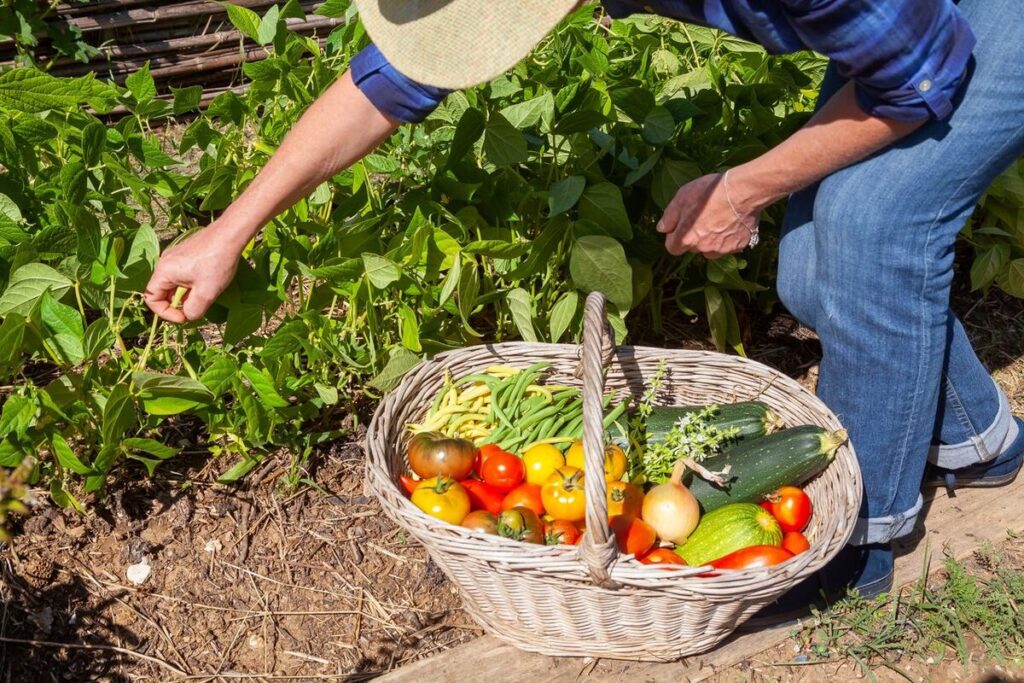As spring blossoms and gardening enthusiasts gear up for planting season, many turn their attention to optimizing their raspberry bushes for a bountiful harvest. If you’re eager to enhance the growth of your raspberries while keeping garden maintenance manageable, mastering the art of companion planting is essential. Let’s delve into the best companion planting strategies to create a thriving raspberry patch.
Unlocking the Secrets of Companion Planting
Companion planting isn’t just a passing trend in gardening; it’s a strategic method that involves pairing plants in ways that benefit each other. This technique can help control pests, prevent diseases, improve soil quality, and increase biodiversity in your garden. By thoughtfully selecting plants to grow alongside your raspberry bushes, you can foster a healthy and productive ecosystem that supports robust growth and plentiful yields.
I remember the first time I experimented with companion planting. My garden was struggling with pests, and traditional methods felt overwhelming. Introducing garlic and marigolds alongside my raspberry bushes not only deterred unwanted insects but also added vibrant colors to my garden beds. According to the National Gardening Association, companion planting can significantly enhance plant health and garden productivity by leveraging natural plant relationships.

Ideal Companions for Your Raspberry Bushes
Choosing the right plants to accompany your raspberries can make a world of difference. Here are some top companions that offer various benefits, from pest repellence to soil enrichment:
Garlic
Garlic’s potent aroma is a natural deterrent for pests like aphids, which can wreak havoc on raspberry bushes. Planting garlic nearby can help keep these pesky insects at bay, reducing the need for chemical interventions. I’ve found that interspersing garlic cloves throughout my raspberry rows not only keeps pests away but also enriches the soil as the garlic decomposes.
Rhubarb
Rhubarb is an excellent companion for raspberries as it enriches the soil with essential nutrients. Additionally, its large leaves provide some shade, which can help retain moisture in the soil—beneficial during hot summer months. My neighbor’s raspberry and rhubarb garden is a testament to this synergy, boasting both healthy fruit and robust rhubarb stalks.
Hyssop
Hyssop is a fragrant herb that repels cabbage moths and flea beetles, common threats to raspberry plants. Its aromatic leaves can mask the scent of raspberries, making it harder for pests to locate them. Incorporating hyssop into your raspberry garden not only aids in pest control but also attracts beneficial pollinators like bees, enhancing overall plant health.
Marigolds
Marigolds are more than just a splash of color in your garden; they are effective at repelling nematodes and attracting pollinators. Their vibrant blooms can lure beneficial insects that help control pest populations naturally. I love planting marigolds around my raspberry bushes—they add beauty and serve a functional purpose in maintaining a healthy garden environment.
Chives
Chives are another excellent companion for raspberries. Their ability to ward off pests like aphids and Japanese beetles makes them invaluable in the garden. Additionally, chives can enhance the flavor of nearby plants, including raspberries, adding a subtle herbal note to your garden produce. My friends often commend the added taste in their raspberry jams, thanks to the chives planted alongside the bushes.
Nasturtiums
Nasturtiums are not only visually appealing with their bright flowers but also act as a trap crop for aphids and other pests. By attracting these unwanted insects away from your raspberry bushes, nasturtiums help protect your fruit from damage. Their presence in the garden also attracts pollinators, promoting better fruit set and overall plant health.
Chamomile
Chamomile is renowned for its calming properties in teas, but it also plays a crucial role in the garden by deterring fungal growth and improving soil health. When planted near raspberry bushes, chamomile can help prevent common fungal diseases, ensuring your raspberries remain healthy and productive throughout the season.
What to Avoid Planting Near Raspberry Bushes
While many plants can benefit raspberry bushes, some may compete for resources or attract pests that could harm your raspberries. Here are a few plants to steer clear of when companion planting with raspberries:
Tomatoes and Potatoes
Tomatoes and potatoes can compete with raspberries for nutrients and water, potentially hindering the growth of both. Additionally, these plants share some common diseases, which can spread more easily when grown in proximity. Keeping these crops separate from your raspberry bushes helps maintain optimal growth conditions for each.
Strawberries
Strawberries and raspberries can share diseases, increasing the risk of pest transfers and infections. Planting them too close together can compromise the health of both plants. It’s best to give your raspberries their own space to thrive without the added threat of shared pathogens.
Mint and Bamboo
Mint and bamboo are notorious for their invasive root systems, which can overrun raspberry bushes and dominate garden space. These aggressive plants can outcompete raspberries for water and nutrients, stunting their growth. To prevent this, it’s advisable to plant mint and bamboo in separate areas or use barriers to contain their spread.
Effective Gardening Practices
To maximize the benefits of companion planting, consider these effective gardening practices:
Maintain a Balance
Ensure that your companion plants do not overshadow your raspberry bushes in terms of space or nutrient competition. Proper spacing and planning are crucial to create a harmonious garden where each plant can thrive without hindering the others.
Rotate Crops
Regularly rotating crops helps prevent soil depletion and reduces the risk of disease buildup. By changing the location of your raspberry bushes and their companions each season, you can maintain soil health and minimize pest and disease issues.
Keep Garden Beds Well-Mulched
Mulching your garden beds helps retain soil moisture, suppress weeds, and regulate soil temperature. A well-mulched garden provides a stable environment for your raspberries and their companion plants, promoting healthy growth and reducing the need for frequent watering.
Implementing these companion planting strategies not only enhances the health and productivity of your raspberry bushes but also contributes to the overall diversity and resilience of your garden. Embrace these tips and enjoy a fruitful harvest season with less effort and more satisfaction.






